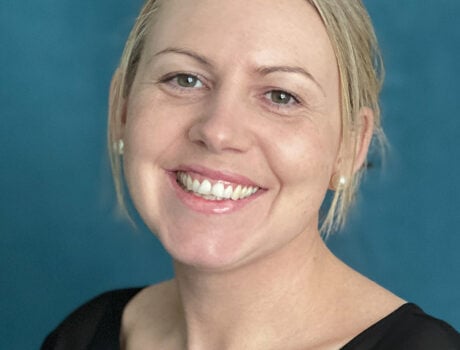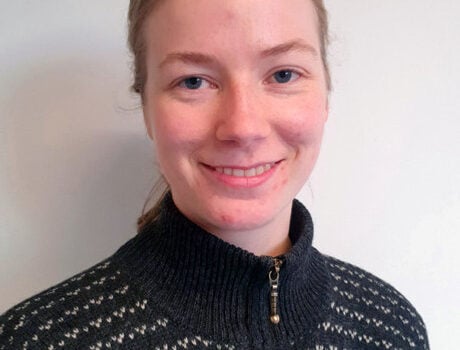


Jonathan Elias Holme
Assigned roles and positions at NILU Centre for Atmospheric Data
- Developer of systems related to ACTRIS and EBAS
Responsibility and function:
Work on tasks in ongoing projects, follow up work with implementation and operation of EBAS and ACTRIS.
Responsible for development of the ACTRIS/EBAS statistics API and involved in implementation of new services and tools related to EBAS and ACTRIS Data Centre.
Goal – short term
- Improve the EBAS web GitLab repository
- Finish the EBAS/ACTRIS statistics API
Be available for clarifications and feedback
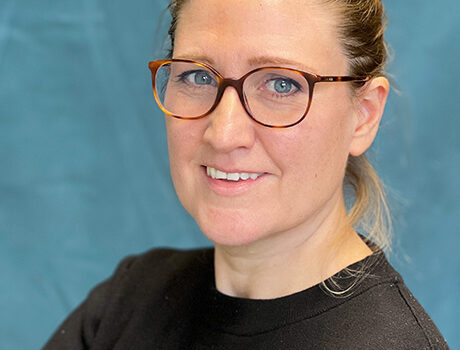
Susie Jahren
Susie Jahren is a researcher and business developer whose work spans the interface between climate research, sustainable innovation, and circular economy solutions.
Susie’s research interests encompass sustainable polymers, bio-based materials, renewable energy integration, and the environmental impacts of new technologies. She has been involved in projects exploring sustainable polymers innovation, microplastic pollution, sustainable materials, waste valorization, and digital innovation for sustainability transitions.
In addition to her scientific and technical work, Susie is deeply engaged in innovation policy, stakeholder collaboration, and the co-creation of sustainable business models. Her interdisciplinary approach connects research and practice, supporting pathways toward a climate-neutral, circular, and resilient society.
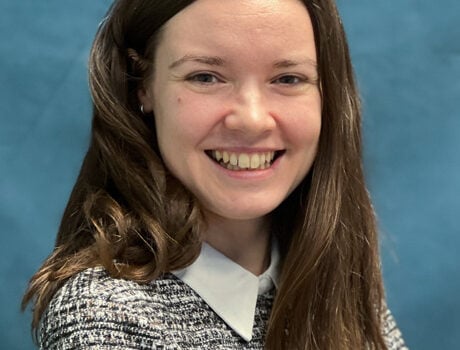
Elisa Pastor Vallés
Elisa Pastor Vallés is a researcher at NILU specializing in Life Cycle Assessment (LCA) and sustainability management. Her research focuses on integrating environmental, social, and economic dimensions of sustainability into decision-making to support a resilient and just transition.
She has broad experience in sustainability assessment and the implementation of circular economy initiatives across multiple sectors. Before joining NILU, she worked for the Spanish Ministry of Environment, in consulting, and as an environmental expert in the construction, telecommunications, and insurance industries, providing her with a multi-stakeholder perspective in her work.
Her PhD addresses the sustainability assessment of industrial symbiosis and circular economy opportunities in the metallurgical industry, with a focus on Critical Raw Materials (CRMs), applying prospective, spatial LCA, and process modelling. She also holds an MSc in Circular Economy (Chalmers University of Technology and NTNU) and a BSc in Environmental Engineering (URJC).
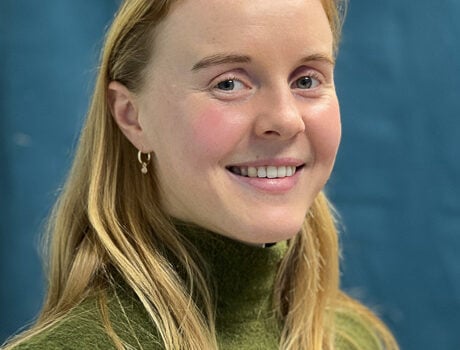
Maria Leseth Føyen
Roles at the NILU Centre for Atmospheric Data:
- EBAS data curation, data flow, and quality control
- Contributing to the development, improvement, and testing of databases, tools, and services for atmospheric data
Responsibilities:
- Data curation and quality control of atmospheric data in EBAS
- Development and testing of tools and routines for data flow and databases
- User support and liaison with data submitters and data users
Contribution to data analysis, visualization, and improved data accessibility
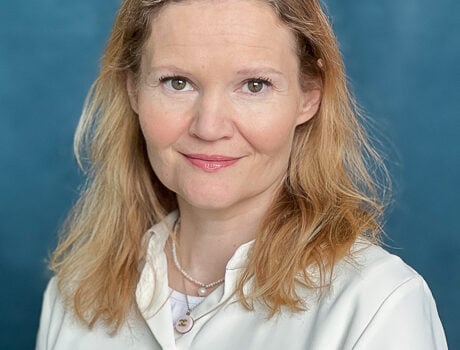
Helene Muri
Helene Muri is a Senior Scientist at NILU, and Adjunct Senior Researcher at NTNU's Department of Energy and Process Engineering.
Muri works in climate and environmental research, with a particular focus on carbon dioxide removal, solar radiation modification (geoengineering), and quantification of emissions and emission reductions in e.g. the transport sector. She has published over 70 peer-reviewed articles and contributed to the IPCC's sixth assessment report in Working Groups 1 and 3. She chairs the European Marine Board Working Group on Marine Carbon Dioxide Removal and has contributed to updates to the United Nations Convention on the Law of the Sea (UNCLOS). Muri is also an active research communicator with over 250 media contributions, including interviews with CNN, BBC and NRK, as well as op-eds in Aftenposten and Dagens Næringsliv.
She graduated from The University of Reading with a BSc (Hons) in Meteorology and earned a DPhil (PhD) in Atmospheric and Oceanic Physics from The University of Oxford, UK, in 2009.

Amandip Sangha
Dr. Amandip Sangha is a Senior Scientist at the Department of Digital Technologies at NILU. He holds a PhD in mathematics from the University of Oslo. His academic interests are in mathematical modelling, data science, ML/AI and HPC applied to fields related to climate and environment.
He is motivated by contributing to socially useful research and knowledge development in the field of climate and the environment.
Niklas Schmidt
Niklas Schmidt has 20 years of international experience across the private sector, the UN system, and consultancy for public and private clients. Niklas has worked more than a decade in complex contexts including Russia, Ukraine, Belarus, Peru, Bolivia, and Mozambique.
His core areas of expertise include societal resilience and security, humanitarian operations and policy, circular economy, and strategic innovation. This is complemented by strong capabilities in capacity development and AI-based modeling.
He has held roles spanning investment analysis (Bonnier Russia), public diplomacy and humanitarian and development coordination (UNSDG), societal resilience and security research and practice development (RISE and NILU), capacity development and executive education (SIDA, Umeå University, Malmö University), and AI modeling and decision-support tools (Novospection, RISE, NILU).

Azimil Gani Alam
Azimil Gani Alam is holding an bachelor and master’s degree in mechanical engineering (ventilation & indoor air quality study) from University of Indonesia and Kookmin University South Korea with over six years of enthusiastic and certified experience in building energy and ventilation audits in Indonesia, Azimil Gani Alam has honed his expertise in this critical field.
He is now pursuing a PhD at the Norwegian University of Science and Technology, focusing on developing a Novel User-Oriented Building Management System to Optimize Indoor Environment control in Educational Buildings under DiggMinSkole’s project with supervision and coordination by NILU, NAAF and Oslo Kommune.

Thomas Walmsley
Thomas Walmsley works as an engineer at the department of monitoring and instrument technology. He has a master’s degree in Environmental Chemistry and Toxicology (MSENVITOX) from NTNU where he in his thesis «Studies of environmental footprint in Brøggerdalen after rocket launching in Ny-Ålesund» did sampling, acid digestion and chemical analysis of trace elements and PCBs in sediment.
He is a part of the group that works on the Medusa GC-MS. He is also responsible for running the EC /OC where he analyses carbonaceous aerosols as a part of the monitoring projects as well as other projects on demand.
Maria Magdalena Holmgren
Maria Magdalena Holmgren joined department for Environmental Impacts and Sustainability in June 2024 and is project leader for the EU project CE-RISE from October 1, 2024. In addition, she will develop strategies for innovation and sustainable transition.
Maria Magdalena Holmgren, MSc, has solid experience in innovation management, sustainable transition and organisational development in roles as senior project manager, strategist, and manager. She has led projects on behalf of both business and the public sector. She has +15 years of experience in international project management in industrial contexts, within and outside Europe.
Magdalena is a driven project manager who has initiated and implemented national and international R&D&I of high complexity and built competitive partnerships together with industry, suppliers, technical institutes, universities, and authorities. She has experience in leading innovation and transformation processes in branches of industries such as mining and minerals, cement, and concrete, building and construction, but also in the service sector; in e-health, creative industries, and ICT.
Magdalena is genuinely interested in cooperation, innovation, and resilience. She is passionate about strengthening the research and innovation capacity of organisations and industries into ability for sustainable transition while maintaining competitiveness. Critical innovation and transition metals are one of her areas of interest related to resilience.

Ayan Chatterjee
Dr. Ayan Chatterjee is a Scientist at NILU Digital Technologies, Kjeller, and Adjunct Associate Professor at Kristiania University College, Oslo, with prior academic positions at the University of Agder and Simula R&D. Known for his interdisciplinary research, Dr. Chatterjee bridges fields such as Software Engineering, Data Science, Human-Centered AI, Data Mining, and Digital Health to foster innovation in academia, industry, and the public sector.
Dr. Chatterjee completed his master’s in software engineering at Jadavpur University, India, and holds a Ph.D. in ICT with a focus on eHealth from the University of Agder, Norway. His doctoral work focused on machine learning-based e-coaching for personalized health recommendations, pioneering methods in personal health data management and hybrid decision-making systems. His expertise spans Software Engineering, Data Science, and Knowledge Engineering, equipping him to tackle complex challenges in health and environmental sciences and driving user-centered, data-driven solutions that impact both research and industry.
An active contributor to European Union projects, Dr. Chatterjee leads or collaborates on Work Packages focusing on Data Science, Digital Health, Environmental Monitoring, and Software Engineering. His project leadership includes overseeing deliverables, coordinating tasks, and ensuring alignment with EU research goals. At Kristiania University College, he has designed and taught advanced courses like "Secure Software Development" and "AI for Cybersecurity" for master’s students, focusing on cybersecurity and software reliability and supervising thesis projects.
With an h-index of 24 and over 950 citations, Dr. Chatterjee shares his findings through conferences, presentations, and journals, and serves on the editorial board of Scientific Reports. His career goal is to advance as a Research Professor in Computer Science, promoting interdisciplinary collaboration to address real-world challenges in data analytics across diverse domains. Dr. Chatterjee’s work at the intersection of technology, environmental sustainability, and human well-being underscores his commitment to impactful, innovative research, contributing to meaningful advancements in science, education, and cross-sector collaboration.

Sivakumar Murugadoss
Dr. Sivakumar Murugadoss is a Scientist at NILU in the department of Environmental Chemistry and Health Effects. He specializes in toxicology, nanotoxicology, in vitro methods, Adverse Outcome Pathways (AOPs), Integrated Approaches to Testing and Assessment (IATA), and Safety-by-Design (SbD) concepts. He has served on the OECD Advisory Group on Emerging Science in Chemicals Assessment (ESCA) and the Belgian Society of Toxicology and Ecotoxicology (BelTox), contributing to international efforts to advance science-based chemical safety assessment.
Since joining NILU in 2024, he has worked on Horizon Europe projects such as ANALYST and PROPLANET, focusing on safe and sustainable PFAS-free coatings and plastics. His work applies Safe and Sustainable by Design (SSbD) principles to define safety frameworks and contribute to the development of practical toolboxes for integrated, holistic SSbD assessment - supported by his expertise in hazard assessment, mechanistic in vitro toxicity, and new approach methodologies (NAMs). He is also expanding his capabilities in in silico and exposure modelling tools to strengthen early-stage SSbD evaluations.
He has contributed to several EU-funded projects, focusing on the integration of mechanistic toxicology, regulatory science, and safety considerations to enable next-generation hazard assessment and the design of safer, more sustainable chemicals and materials.

Xiaoxiong Ma
Xiaoxiong Ma is a Senior Engineer at NILU in the department of Environmental Chemistry and Health Effects.
He is a molecular biologist with expertise in gene editing (CRISPR-Cas9), in vitro human and animal tissue models, stem cell models, microscopy, histology, RNA sequencing, gene expression, cell differentiation, and a wide range of in vitro toxicology assays.
Since 2022, he has worked as an engineer at the Norwegian Institute of Public Health, in the Department of Biobanks, where he contributed to studies related to MoBa (the Norwegian Mother, Father and Child Cohort Study), and in parallel in the Department of Chemical Toxicology, where he performed laboratory work supporting the revision of the in vivo comet assay (OECD Test Guideline 489) to include analyses of male germ cells.
In 2024, Xiaoxiong joined NILU, working with PROPLANET, an EU Horizon Europe project developing safe, sustainable PFAS-free coatings for textiles, food packaging, and glass, with a focus on health-related toxicology endpoints.

Ann-Karin (Anka) Hardie Olsen
Dr. Ann-Karin (Anka) Olsen is a senior scientist at NILU in the department of Environmental Chemistry and Health Effects.
She is a molecular biologist with expertise in toxicology, with main areas of expertise in genetic toxicology, DNA damage and repair, mutagenesis, DNA sequencing, gene expression, epigenetics, endocrine effects and cancer, with special focus on male germ cells.
She has experience with models from bacteria, yeast, cell models (2C, 3D, stem cells), animal experiments and human cohort studies. She has established several state-of-the-art analysis methods, with a focus on the development of new methodologies, so-called NAMs (New Approach Methods), preferably according to the principle of SSbD (Safe and Sustainable by Design)
Anka started at NILU in 2024 after a long time at the Norwegian Institute of Public Health in the Department of Chemical Toxicology as a research professor.
She has led several national and international projects and led the work package on “Biological effects” through 10 years for the Center of Excellence ( CoE/ RCN Sff) Center for Radioactivity, Humans and the Environment (CERAD; 2013-2023. Led by NMBU).
She has long experience in human risk assessment and regulatory toxicology, mainly of consumer products (expert for the European Chemicals Agency ECHA), and food. She is involved in several working groups in the OECD and has contributed to the development of standardized OECD tests for use in chemical regulation. She leads the OECD project for the revision of the in vivo comet assay (OECD Test guideline 489) to include analyses of male germ cells. She is part of the Scientific Committee for Food and the Environment (VKM), participates in several working groups in the Health and Environmental Sciences Institute (HESI) and the International Workshops on Genotoxicity Testing (IWGT), and is president of the European Environmental Mutagenesis and Genomics Society (EEMGS).
